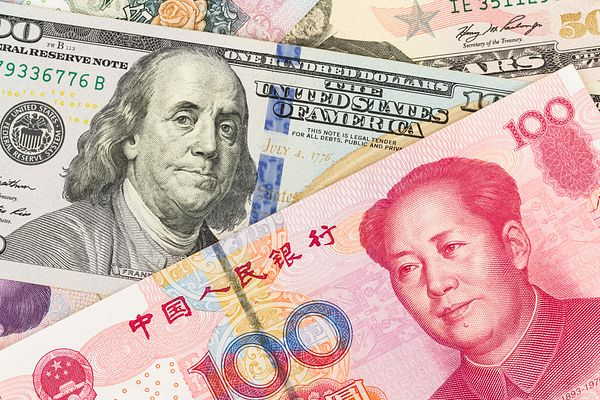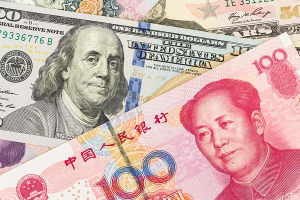Join Our Telegram channel to stay up to date on breaking news coverage
Circle Ventures, the venture division of USDC issuer Circle, has invested in CNHC, an offshore stablecoin project backed by the Chinese yuan. The partnership’s timing and strategic importance are difficult to ignore. Stablecoins have developed from a niche business into a $130 billion industry in just a few years. These digital currency are intended to provide a less volatile means of trading than, say, Bitcoin and Ethereum because they are often backed by conventional assets like the U.S. dollar.
As the stablecoin market expands, a hierarchy emerges that is similar to the old, USD-centric financial system. About 99% of stablecoins in circulation today are pegged to the US dollar, and CNHC is one of the few initiatives to challenge the dominance of the dollar in the blockchain industry.
Since March, Circle has been having problems. It was first impacted by the closure of Silvergate and then by the collapse of Silicon Valley Bank. The stablecoin issuer was reported to have retained reserve deposits at both banks. The USDC momentarily departed from its $1 target price over the past week.
Uncertainty surrounds the size of Circle Ventures’ holdings in CNHC, a company that offers cross-border payment services and is registered in the Cayman Islands. Nonetheless, the decision to expand into the East could be a smart hedging move for the Boston-based cryptocurrency business.
The fourth-largest cryptocurrency exchange in the world, KuCoin, led the $10 million newest investment round for CNHC. Participating investors were IDG Capital and Circle Ventures.
Hong Kong’s crypto market
The yuan-backed stablecoin market has just started to take shape, in contrast to the USD-dominated stablecoin market, which has developed and become highly regulated. Hong Kong, which has historically been the biggest offshore yuan center, is where the transfer is taking place.
The city established a yuan settlement system in 2009, laying the groundwork for the currency’s progressive globalization. To distinguish it from the onshore CNY, the offshore currency CNH was established, with the “H” standing for Hong Kong.
Geopolitical developments have recently threatened the city’s position as Asia’s financial capital. Nonetheless, there are indications that it is making an effort to win back investor confidence.
In particular, it is loosening regulations for cryptocurrency-based finance. In stark contrast to mainland China’s restriction on all cryptocurrency transactions, the city put up a set of regulations in late February that might allow individual investors to trade popular cryptocurrencies like Ethereum and Bitcoin.
The CNHC stablecoin was created to ride the rising wave of crypto laws in the area. The early 2021 startup is locating its corporate headquarters in Hong Kong.
Curt Shi, founding partner of the brand-new web3 venture capital business Prodigital Future Fund with headquarters in Hong Kong, asserts that the growth of regulated stablecoins is advantageous for Hong Kong as an international financial center.
“Hong Kong is moving toward greater openness and stronger investor protection, and I assume more conventional banks may join as issuers.”
Dollar substitute
According to CNHC, which is a 1:1 fully collateralized stablecoin backed by offshore Chinese yuan, the Hong Kong Monetary Authority must approve it and it must provide audit reports upon the request of the local government.
A trust structure for the custody of collateralized fiat currency as well as a framework for KYC (know-your-customer) and AML have also been established by the stablecoin issuer (anti-money laundering).
The platform of the stablecoin allows for the redemption of CNHC into fiat offshore yuan. Working with partners in many nations, CNHC is converting into other currencies like USD, EUR, and GBP.
The Conflux blockchain, supported by KuCoin, on which CNHC is issued, advertises quick and inexpensive transactions. Conflux is also unique in that it asserts to be the first public, permissionless blockchain in China that complies with regulations. The co-founder of the Chinese blockchain revealed during an event in January that the company intended to relocate its headquarters to Hong Kong.
Yuan-pegged stablecoins are also being developed by other crypto companies.
Blockchain platform Tron, owned by crypto billionaire Justin Sun, welcomed offshore Chinese yuan-pegged TCNH in December.
Early in 2021, Jack Chou and Joy Cham founded CNHC, which uses stablecoins to assist Chinese exporters in receiving payments from poor nations where banking and other conventional financial institutions are underdeveloped. The corporation used the USDT, USDC, and CNHC stablecoins to execute $40–50 million in monthly transactions in 2022.
Related
- China Doles Out Free Digital Yuan During New Year To Boost Adoption
- China’s Central Bank Addresses Digital Yuan Privacy Concerns
- KuCoin faces a lawsuit for offering crypto trading services in New York without registering
Join Our Telegram channel to stay up to date on breaking news coverage


